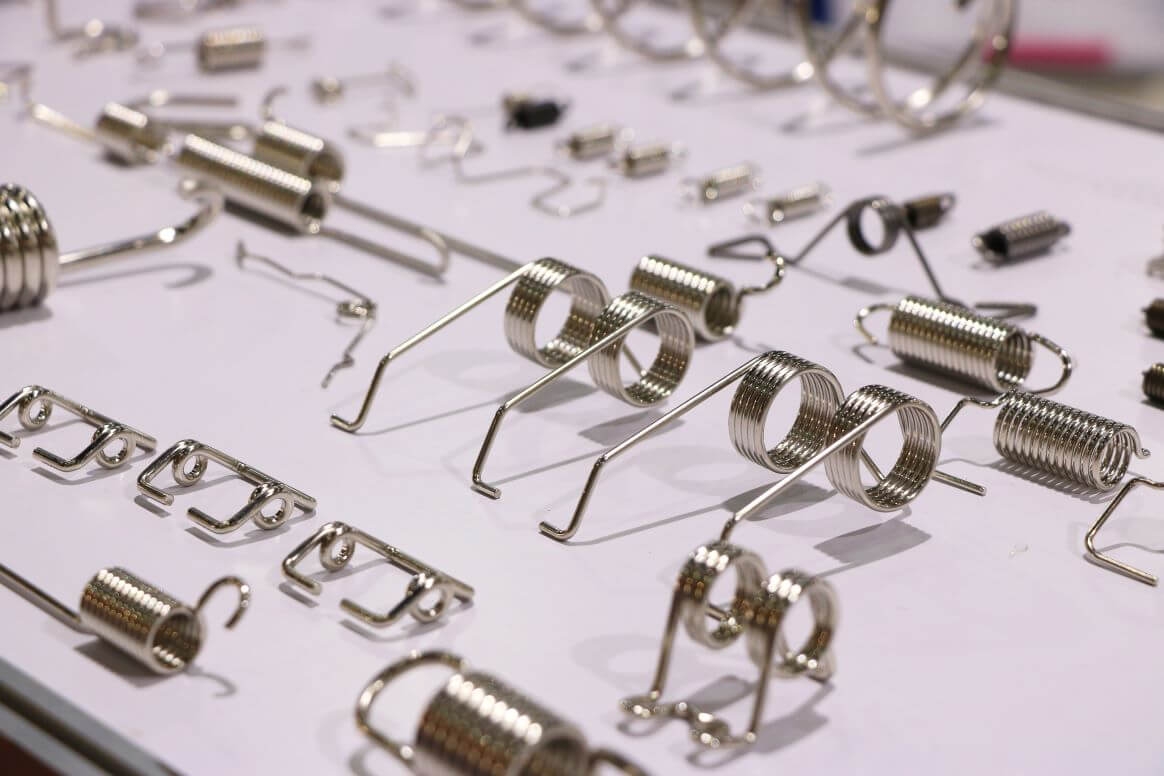How are torsion springs manufactured?

How are torsion springs manufactured?
The manufacturing of torsion springs typically involves the following steps and requires professional spring-forming machinery along with strict quality control procedures:
1. Material Selection
Commonly used materials include:
• Carbon steel (e.g., music wire)
• Stainless steel (e.g., SUS304)
• Alloy steel (e.g., chrome-silicon steel)
Selection criteria:
• Operating environment (temperature, humidity, corrosion)
• Required strength and service life of the springs
2. Forming (Coiling)
• Wire is coiled by using CNC spring machines or specialized torsion spring machines according to design specifications, including the required angles and number of turns.
• The two ends of the spring, known as “hooks” or “legs” are formed. Depending on the application, they may be straight, bent, hooked, or shaped differently.
3. Heat Treatment (Tempering)
• The formed springs are heat-treated at around 250–400°C to release the initial stress
• Improve elasticity and fatigue life
4. Surface Treatment (As Required)
Depending on the product application, options include:
• Electroplating (e.g., zinc, nickel) for corrosion resistance
• Phosphating
• Coating or painting
• Stainless steel springs may not require additional surface treatment
5. Quality Inspection
Testing typically includes:
• Torque value testing
• Dimensional accuracy
• Surface defect inspection (e.g., cracks, burrs)
• Fatigue testing (depending on application)
6. Assembly or Post-Processing (Optional)
• Some torsion springs are pre-assembled with other components or further processed into specific shapes to fit particular applications (e.g., clamps, mechanical assemblies).
We are capable of manufacturing various types of torsion springs, many of which are still custom-made products. Beyond the manufacturing processes described above, practical production also involves assessing whether the spring design may conflict with actual machine operations (such as interference issues during forming). Additionally, factors such as material selection, spring index, and required torque all need to be carefully evaluated. These aspects require further communication between both parties. If you have any needs or questions regarding torsion springs, please contact us at: sales@oscarprecision.com.



